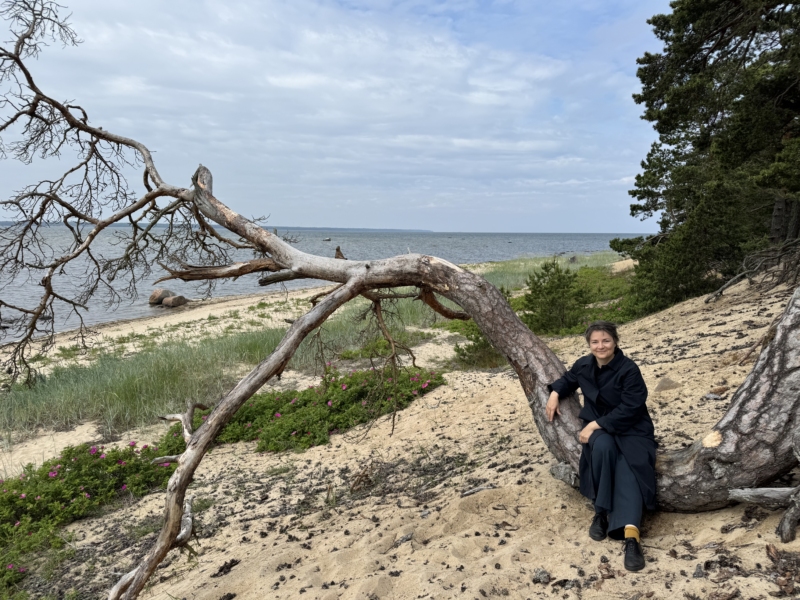Helena Tulve
Composer

Which sound is special for you?
There’s something deeply moving in the sounds and resonances of the wilderness – they carry a timeless quality and connect me to more primordial layers of the inner self. At the same time, I’m drawn to the spontaneous, unpredictable interactions between everyday environmental sounds. In their accidental nature, these sounds start to communicate, forming a kind of living, shifting soundscape. When we truly listen, any sound can become meaningful – and music often arises from these unexpected encounters.
What can disturb (your) music?
Music can be disturbed by superficiality – by a lack of focus or presence in listening. It suffers when we approach it with unjustified expectations or the need for immediate meaning, instead of allowing it to unfold in its own time. True listening asks for openness: a willingness to be present, without rushing to understand or define.
Text or no text?
Both have their place for me. I often work with the voice – the most intimate of human instruments – with its special sonic qualities and sensitivity, both carrying and also being carried by the meaning of the text. Every language has its own rhythm, contour, breath – and that shapes strongly its musical expession. Instrumental music, on the other hand, opens up a different space – perhaps more abstract, but also freer. It can speak in ways that go beyond language – through textures, tensions, colours, spaciousness, and timing. Still, even without words, some sense or memory of language often lingers in the music. It’s part of how we listen and perceive.